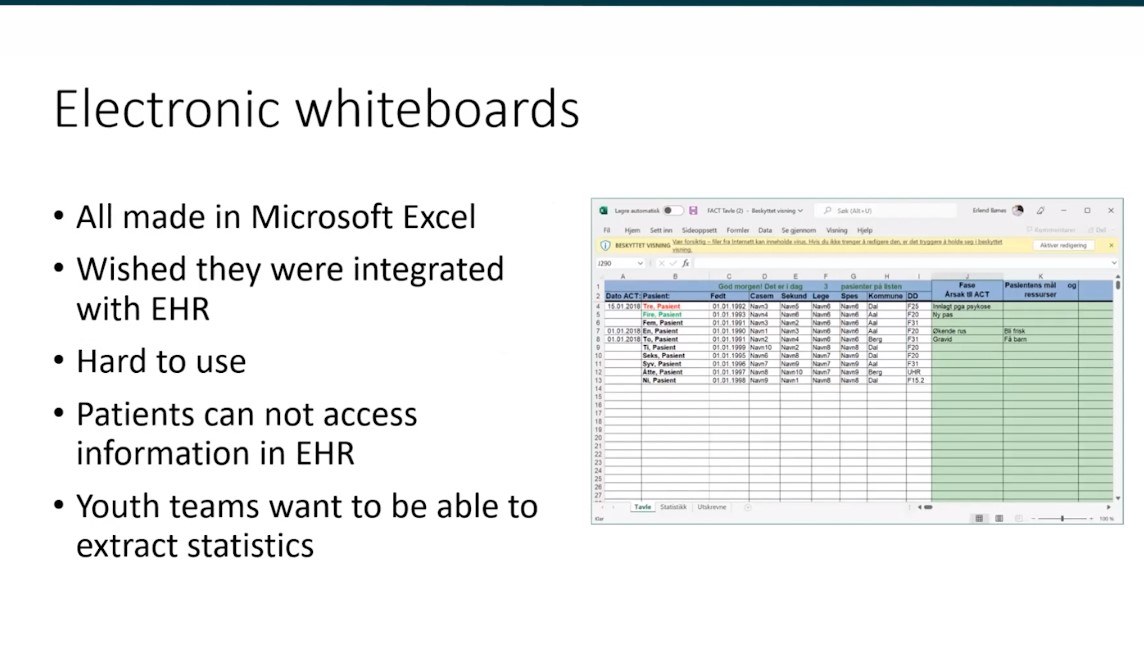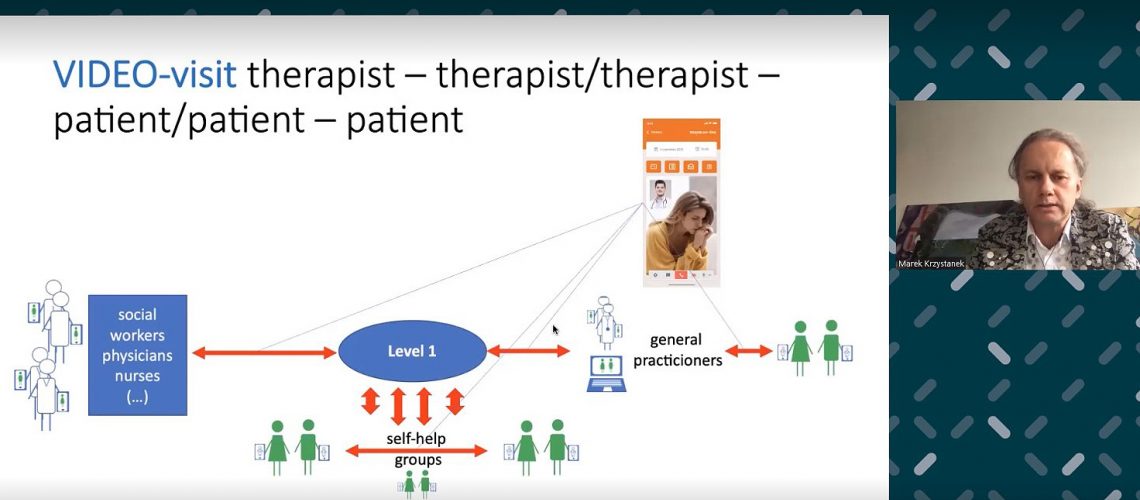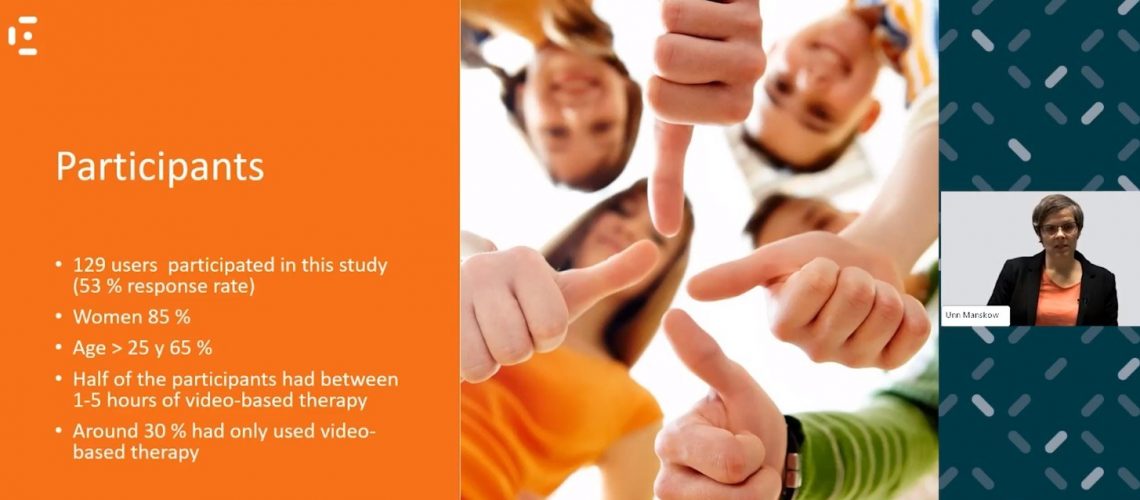Feedback from users essential to create good online treatment
Our second open day webinar was held on 27 October 2022. The overarching theme of the presentations was digital mental health services.

PhD fellow Erlend Bønes, E-health Research, presented a study about FACT – Flexible assertive community treatment teams in Norway. FACT is community-based and a good solution for delivering mental health services to people with long term mental illness. A main challenge for the multi-disciplinary teams is to obtain and exchange the needed user information digitally between care-givers, in a way that safeguards privacy and information security.
Professor Marek Krzystanek from the Medical University of Silesia, Poland, introduced us to the use of video consultations in a Polish setting. He has long been an advocate for a more widepread use of tele-psychiatry. He explained that video consultations should be used in all medical fields, including somatics. It is possible to collect and analyze more health data, and both patient and doctor can share their assessment of health status and treatment.

We learned about video-based therapy for youth who have a parent with alcohol or substance abuse. Our researchers Marianne Trondsen and Unn Manskow have done a survey among users about their experiences with video-based therapy. The researchers collaborate with the Blue Cross Compass organisation, and the director Frøydis Eidheim underlined the importance of taking part in the research.
A recording with a patient was played. She pointed to several things that can make a video call with the therapist good. It is important to prepare in advance, find a quiet place where the conversation will be safe and comfortable. After the video meeting, she made sure to have time to relax and reflect.

Professor Monika Gullslett has examined how video consultations were perceived among healthcare professionals in mental health hospital departments, in the context of Covid-19 restrictions. Some advantages with video were that one can maintain relationships between the therapist and the patient, it created a continuity in the treatment and it made it easier to collaborate with other people who were also helping to treat the patient, like their next of kin.
The recorded presentations can be viewed here. (YouTube playlist: Open Days)